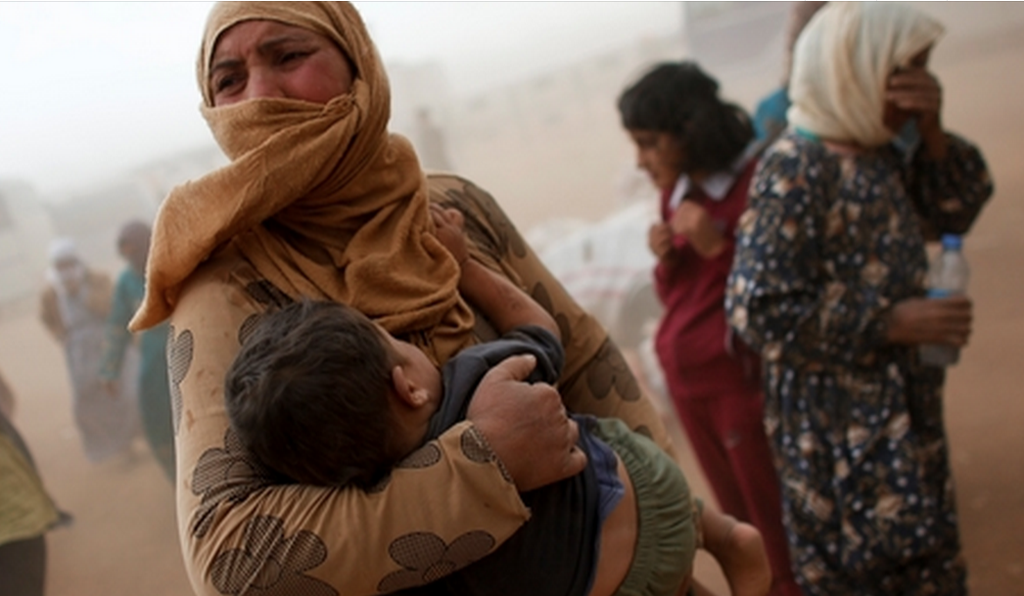The following information is based on the Amnesty International Report 2022/23. This report documented the human rights situation in 149 countries in 2022, as well as providing global and regional analysis. It presents Amnesty International’s concerns and calls for action to governments and others.
HUMAN RIGHTS OVERVIEW 2022
The authorities conducted arbitrary arrests and detentions, torture and other ill-treatment and enforced disappearances, including in the context of the presidential election and the so-called “Cleaning Operation” against criminal gangs. Impunity for sexual violence continued. Pregnant girls remained banned from attending school. Undocumented migrants were deported amid a lack of due process. LGBTI people continued to face multiple forms of discrimination. The death penalty was abolished in the Penal Code but remained in the Code of Military Justice.
BACKGROUND
Staff of the International Monetary Fund visited Equatorial Guinea in May and warned of the urgent need to mitigate the impact of rising food and fuel prices on people living in poverty.
In September the ruling party nominated President Teodoro Obiang Nguema Mbasogo, in power for 43 years, to be its candidate for the November presidential elections. He was re-elected with 94.9% of the vote.
ARBITRARY ARRESTS AND DETENTIONS
In May, in response to an alleged increase in crime, Vice-President Nguema Obiang Mangue launched a national so-called “Cleaning Operation” to counter gang crime. During a single week in May, more than 400 young males were arrested by security forces. Three months after the start of the operation, thousands more had reportedly been arrested across the country. Judges granted parole to some of those arrested due to a lack of evidence. In many cases, individuals were ill-treated by the security forces during their arrest and detention; at least four died in prison. The whereabouts of many others remained unknown, and their families often had little or no news.
1
Former minister of justice Ruben Maye Nsue Mangue was arrested on 7 August after criticizing the president on social networks. Civil society organizations had no news of his whereabouts for many days. He remained in detention at Mongomo prison at the end of the year.
On 29 September, police arrested the leader of the opposition party Citizens for Innovation, Gabriel Nse Obiang Obono, and more than 150 of his supporters who were gathered at the party’s headquarters in Malabo. According to the authorities, four activists died from tear gas inhalation during the arrests, while Citizens for Innovation issued a list of nine fatalities. A police officer also reportedly died. On 6 October, 119 of the supporters were released without charge. Citizens for Innovation had been dissolved by the authorities in 2018. Gabriel Nse Obiang Obono had previously refused to respond to a judicial summons. A few days before the arrests, he threatened that there might be demonstrations if he was not allowed to run in the presidential elections. He was still detained at the end of the year.
WOMEN’S AND GIRLS’ RIGHTS
On 28 July, a 16-year-old girl was raped by an alleged member of the army forces deployed on Annobón Island. A complaint was filed but no information was available on any follow-up. Some inhabitants of the island reported to the authorities that other cases of sexual violence by members of the defense and security forces had been committed previously with impunity. There were no investigations into these allegations and some of the accused were simply transferred elsewhere in the country.
Pregnant girls continued to be banned from attending school following an order issued by the Ministry of Education in 2016. However, in its 2022 intermediate UPR report, the government mentioned the adoption of measures to reintegrate pregnant girls into the education system after they give birth.
REFUGEES’ AND MIGRANTS’ RIGHTS
Between January and March, dozens of irregular migrants were deported to their home countries without due process and without access to a lawyer prior to deportation orders being carried out. According to local organizations, more than 500 people – mainly nationals of Cameroon, Nigeria, Senegal, Côte d’Ivoire, Central African Republic, Chad and Mali – had been arrested during a government campaign against irregular migrants accompanied by immigration raids that took place between 30 October 2021 and early December 2021 in major cities. Other people detained in the context of this campaign were released weeks after their arrest but did not receive any explanation for their detention and were never charged. Others, including Abdoulay Ndom and Mouamed Kalouare from Mali, Toba Mammed from Guinea, and Lamin Sisoko from Côte d’Ivoire, were detained for almost six months before being released in May 2022. Along with the vast majority of detained individuals, they did not receive any legal assistance, nor were they given access to appropriate legal procedures and due process relating to their detention.
2
Following criticism from migrants’ countries of origin, the government extended the period for undocumented migrants to regularize their status until the end of August. It then resumed its campaign against irregular migrants.
LGBTI PEOPLES’ RIGHTS
LGBTI people continued to face multiple forms of discrimination in aspects of their lives including work, education and lei
sure. In its intermediate UPR report, the authorities reported that draft legislation regulating sex work and the rights of LGBTI people was still being prepared. The draft legislation reportedly included prevention of “exhibitionism” and homosexual “propaganda” and a provision to safeguard the “moral integrity of the social majority”, implicitly perpetuating discrimination, stigma and violence against LGBTI people.
DEATH PENALTY
On 19 September the president promulgated the new penal code which abolished the death penalty. However, death penalty provisions remained in the Code of Military Justice.
- “Equatorial Guinea: ‘Cleaning Operation’ tramples on human rights, not crime”, 18 August



